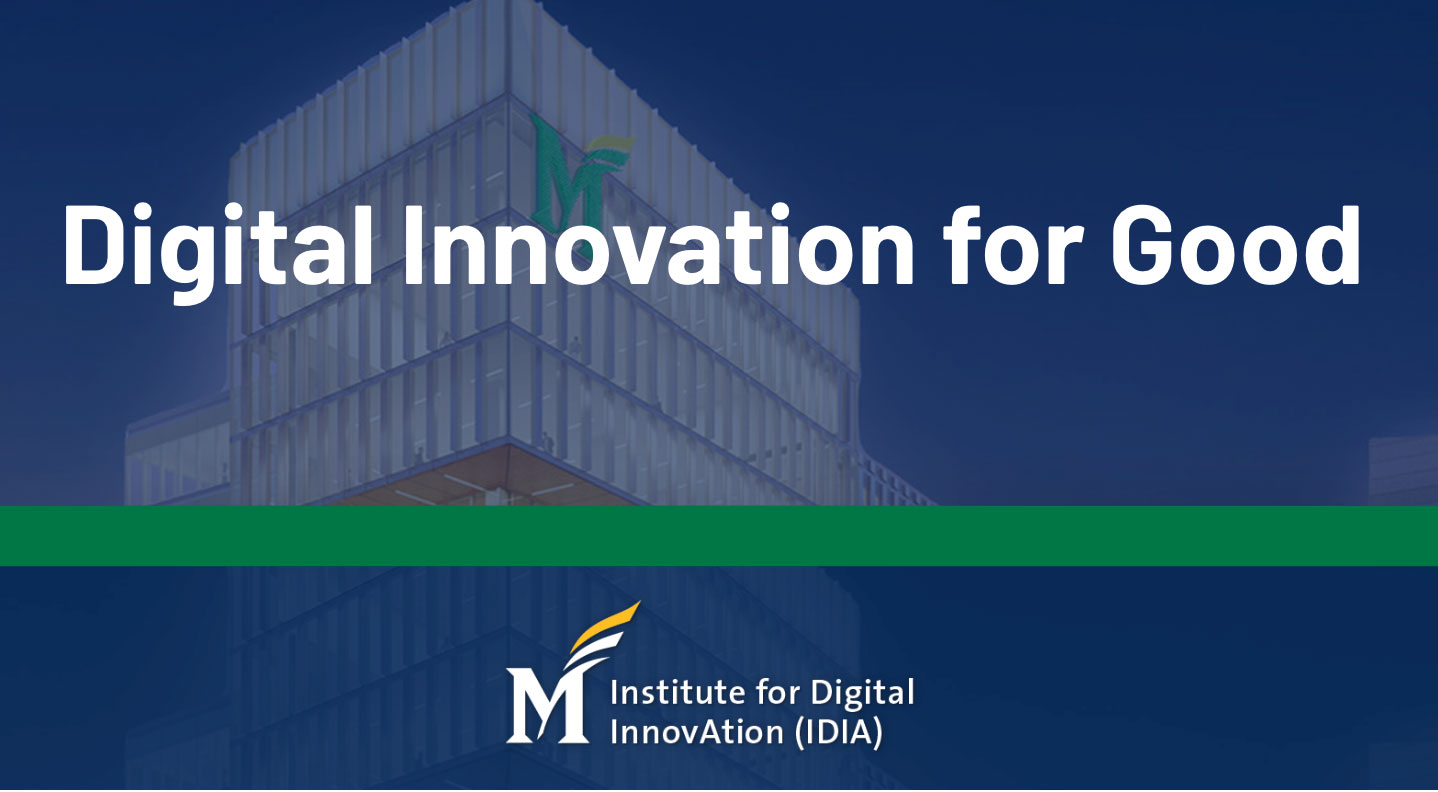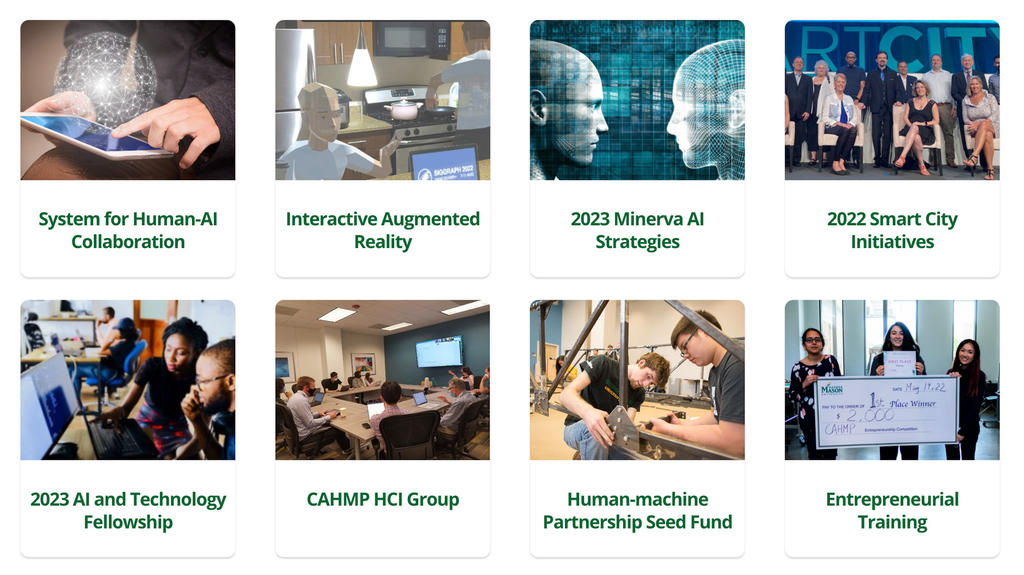
More to Explore »

Mason's Institute for Digital Innovation
IDIA is a nexus point for collaborative efforts, with a rich program of transdisciplinary and translational research, scholarship, and workforce development activities. Learn more about IDIA.

Policy and Government
Mason's Schar School of Policy and Government prepares undergraduate and graduate students to be leaders and managers who solve problems and advance the public good in all sectors and levels of government—in the United States and throughout the world.
Artificial intelligence, or AI, is top of mind and news of late, with open-source tools like ChatGPT allowing anyone from school-aged children to seasoned professionals to experiment with this new and exciting technology. But as everyone rushes to test out just what AI can do, Mason professor J.P. Singh is concerned more about how these technologies are created.

J.P. Singh speaking at a global art exhibit about his report "The Cultural relations of Negotiating Development: Developing Inclusive and Creative Economies".
“Perhaps the most important and unique feature of our project is that we will use sophisticated big data models in computer and social sciences to specify the economic and cultural determinants,” says Singh. “This analysis will be important for showing how cultural values and institutional priorities embedded in AI shape security—and insecurity—in the 21st century.”
A Distinguished University Professor with Mason’s Schar School of Policy and Government, Singh’s research focuses on how cultural preferences can shape both global policy and technology.
Too often, the choices that leaders make are shaped by person or environmental bias or preferences—and these preferences can skew to certain audiences, preventing technologies from being truly inclusive.
1.3 Million Dollar AI Grant
For his research, Singh has received high-profile fellowships and grants enabling him to travel to different countries, gather data in the field, and interact with policymakers and leaders on a national level. Most recently, he’s been the lead on a team of researchers from across George Mason University campuses that received a three-year, $1.39 million grant in 2022 to study the economic and cultural determinants for AI infrastructures—and describe their implications for national and international security.
The grant came from the U.S. Department of Defense’s esteemed Minerva Research Initiative, a joint program of the Office of Basic Research and the Office of Policy that supports social science research focused on expanding basic understanding of security. In 2022, just 17 university teams were selected from more than 220 proposals.
“This prestigious award recognizes the kind of transformative and multidisciplinary research for which Mason and the Schar School are known,” says Mark J. Rozell, dean of the Schar School.
“Professor Singh's research cuts across academic boundaries to engage the insights of different disciplines in understanding complex public policy issues. His work speaks to not only academic researchers, but opinion leaders and policymakers as well.”
-Mark Rozell, Dean, George Mason University
The mission of the Center for Advancing Human-Machine Partnerships (CAHMP) is to transform social anxiety into social resonance by pursuing convergent research on how to restructure and optimize reciprocal relationships between humans and assistive computing systems.
A Team-based Approach to Research
Singh assembled a transdisciplinary team of veteran researchers from several academic fields to contribute to the project. Fellow Mason researchers include:
- Amarda Shehu, an award-winning machine learning engineer from Mason’s Department of Computer Science at the Volgenau School of Engineering and co-director of Mason’s Center for Advancing Human-Machine Partnerships (CAHMP)
- Antonios Anastasopoulos, an assistant professor of computer science at Mason’s College of Engineering and Computing
- Michael Hunzeker, an assistant professor at the Schar School and associate director of Mason’s Center for Security Policy Studies
- Jesse Kirkpatrick, an ethicist, research assistant professor, and acting director of Mason’s Institute for Philosophy and Public Policy
The team originated from Mason’s interdisciplinary Center for Advancing Human-Machine Partnerships (CAHMP), which researches how to structure and optimize reciprocal relationships between humans and assistive computing systems. The final deliverables from the grant will include forecasting models for AI infrastructures for different national and global contexts, enriched with field research and reports.
Investigating Bias in AI Data
In addition to the Minerva Research Initiative grant, Singh has also twice been named a Richard von Weizsäcker Fellow by the board of the Robert Bosch Academy in Berlin. Weizsäcker Fellows are selected through a rigorous nomination process as the academy identifies thought leaders who can contribute to an international conversation regarding German and global policy decisions. “Each of us is encouraged to take up a project and engage with German politicians, the industry, and policymakers,” Singh says of the fellowship.
Whether it’s with AI, German policymaking, or advising the World Bank or UNESCO, Singh’s motivation is one aligns with Mason’s overall mission: boldly pursue innovation, but do so while leaving no one behind.
George Mason University's Schar School staff contributed to this story.

